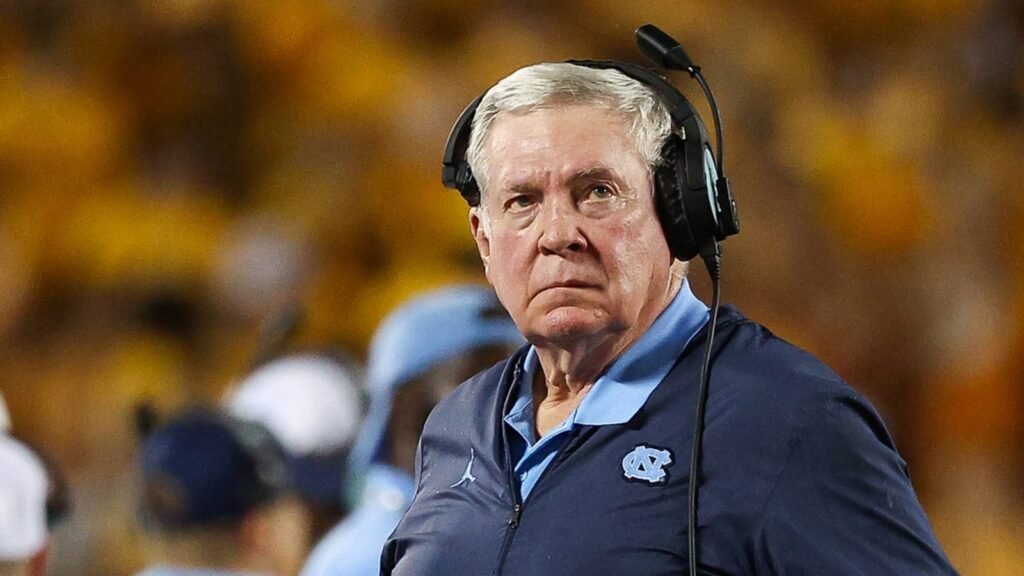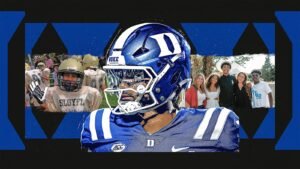The University of North Carolina’s football program has been thrust into the spotlight for all the wrong reasons, as the handling of head coach Mack Brown’s dismissal has sparked widespread backlash and exposed significant fractures within the university’s leadership. Athletic Director Bubba Cunningham’s decision to inform the Hall of Fame coach of his firing over a phone call while vacationing in Hawaii has been called “shameful” by UNC Board of Trustees Chairman John Preyer. Preyer did not mince words when criticizing Cunningham’s actions, stating, “You don’t treat a Hall of Fame coach that way, and you damn sure don’t do it from halfway around the world.”
The controversy surrounding Mack Brown’s firing reflects deeper issues of inconsistency and mismanagement within UNC’s decision-making processes. Only weeks before his dismissal, the Board of Trustees had reportedly been pushing for Brown to continue as head coach, praising his leadership and advocating for his return in 2024. The abrupt about-face in forcing his exit has not only angered Brown but also confused fans, alumni, and insiders who expected a more measured and transparent resolution.
Brown himself expressed deep disappointment with the manner in which the university handled his firing, particularly its timing and lack of direct communication. Brown, who was inducted into the College Football Hall of Fame in 2018, has been one of UNC’s most visible and respected figures, guiding the program to bowl games and maintaining the program’s reputation on a national stage. “This is not how you treat someone who has given everything to this university, on and off the field,” a source close to Brown said.
Adding to the firestorm, reports have emerged that the same Board of Trustees, which appeared divided on Brown’s future until the last minute, is now floating the idea of interviewing NFL coaching legend Bill Belichick as a potential replacement. While Belichick’s coaching pedigree is unquestioned, the suggestion has been met with skepticism and even ridicule by those who view it as emblematic of the university’s unrealistic and disjointed approach to rebuilding its football program. Critics have labeled the move as “laughable,” questioning whether UNC’s leadership understands the complexities of attracting a coach of Belichick’s stature to the college game, particularly after their mishandling of a beloved figure like Mack Brown.
The timing of these decisions has also raised eyebrows, coming as UNC faces broader concerns about its athletic department’s leadership. Over the past several years, UNC has weathered multiple PR crises, from NCAA investigations to controversies around its flagship basketball program. The treatment of Brown only adds to the perception of instability and a lack of strategic vision within the athletic department and the Board of Trustees.
John Preyer’s public rebuke of Bubba Cunningham highlights the fractured relationships at the highest levels of UNC’s leadership. While some members of the board may support Cunningham’s actions, others see it as a pattern of disrespectful and haphazard management. This isn’t the first time Cunningham has faced criticism during his tenure as athletic director, but the fallout from the Mack Brown situation could have long-lasting ramifications for his credibility.
For UNC football, the immediate focus shifts to finding a replacement capable of not only succeeding on the field but also navigating the complexities of a fractured administration. However, the chaotic nature of Brown’s dismissal casts a long shadow over the program, and prospective coaches may hesitate to step into what appears to be a volatile situation.
As UNC looks ahead, the university’s leadership must confront the internal divisions and lack of cohesion that have increasingly undermined its athletic programs. Mack Brown’s legacy at North Carolina may be secure in the eyes of fans and alumni, but the way his tenure ended will serve as a cautionary tale about the consequences of poor leadership and fractured decision-making. For now, the questions loom larger than the answers: Can UNC repair its damaged reputation, and will the next chapter for its football program reflect lessons learned or more of the same chaos?












